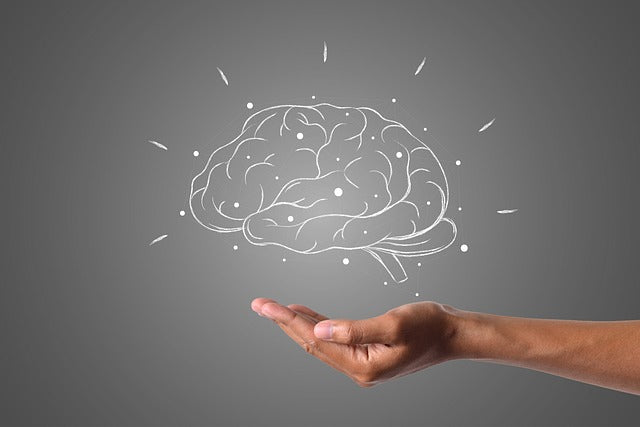How Vitamins, Minerals and Hydration Can Power Athletes to Peak Performance
We’re living in a golden age of athletic prowess. Whether world famous or utterly unknown, athletes these days seem crafted of astonishing power and prowess, breaking records of every kind, flashing out with impressive endurance and speed. Evidence that more and more Americans of all ages are engaging in athletic activities is everywhere we look. An estimated ten million Americans run and jog for exercise today—they just put on their running shoes and go, and they are participating in running events at record levels. Endurance sports, from the Ironman to marathons, triathlons, road cycle races and more, are growing in popularity. These competitions have been called the “new golf” for middle aged men. Fitness apps designed to provide exercise tips and nutritional advice and track physical activity are nearly ubiquitous these days. Track and field sports, so popular in high schools, are on the increase, according to The National Federation of State High School Associations' annual High School Athletics Participation Survey.
This is all good news, of course. Exercise is well known to reduce the risk of mortality from all causes.[1] High levels of physical activity and regular exercise training dramatically reduce the chances of succumbing to many chronic diseases, from heart disease to diabetes, obesity, and more. The current guidelines for aerobic exercise recommend 150 minutes a week of moderate physical activity, or 75 minutes a week of vigorous physical activity, or a blend of both.[2]
In fact, according to Dr. Mark Tarnopolsky of McMaster University in Ontario, exercise almost instantaneously leads to positive changes throughout the body, from the heart to the muscles, lungs and bones. Blood sugar regulation improves. Even the brain benefits from exercise--vigorous physical activity improves memory, learning and reduces risk of depression. “Going for a run is going to improve your skin health, your eye health, your gonadal health,” Tarnopolsky told Time Magazine in 2016. “It’s unbelievable.”
Vitamins, Minerals and Fluid Balance: Why Hydration is Key to Peak Performance
Did you know that 60% of your body weight is water? In adults, about two-thirds of the body’s water is intracellular, and one third extracellular.[3] Without water, there would be no life. Water is an essential liquid nutrient that functions as a solvent, a carrier for nutrients and for waste, a lubricant, a shock absorber, and helps us maintain our blood volume and regulate our body temperature. The maintenance of water balance is very precise, and the mere loss of one percent of the body’s water is significant enough that the body will signal with enough thirst to restore balance within 24 hours. During exercise, our bodies maintain optimal temperature by sweating, which removes heat, but also results in a loss of body fluid.
Both fluid and electrolyte balance are critical during athletics and intensive exercise. Sweat rates and fluid loss can vary widely during intense activity—from very little to over three liters an hour, depending on the individual, the ambient temperature, and the type and intensity of exercise.[4] Hypohydration—too little water—has been shown to impair aerobic and high intensity endurance activity more than muscular strength and cognitive ability.[5] Dehydration of greater than 2% loss of body weight can lead to nausea, vomiting, diarrhea and other problems during exercise.[6]
Innumerable studies have shown how important mineral water can be for rehydrating athletes before, during and after activity. The more severe the level of dehydration during exercise, the higher the body temperature and heart rate, and the lower the sweat rate.[7] Drinking during competition is as important as drinking before and after competition, and in reality athletes seldom replace fluids fully due to sweat loss. But proper hydration during training or competition enhances performance, delays fatigue, and prevents damage linked to dehydration and sweat loss.[8] Unfortunately, many top competitive athletes don’t hydrate enough. Substantial (over 5 %) body mass loss has been noted in studies of elite athletes involved in ultra-endurance events.[9]
One simple recommendation to athletes for measuring hydration is to start exercise in a hydrated state. When hydrated, urine is a pale, light yellow and copious. When dehydrated, it will be a darker amber color and volume will be lower. An athlete should drink enough before and during exercise to keep urine pale yellow and to prevent any weight loss. Athletes can determine this by weighing themselves before and after exercise a few times per season. During intense exercise, as much as 4-8 ounces of fluid every fifteen minutes may be necessary.[10]
How Specialized Marine Plasma Offers Optimal Hydration
Life first flowered in the sea, and our blood emulates seawater with its many nourishing minerals. It makes sense, then, that hydrating with purified seawater might provide optimal benefits and electrolytes to athletes wishing to hydrate properly.
The benefits of purified seawater rich in the minerals were discovered by French biologist and physiologist Rene Quinton, who lived from 1866 to 1925. He found that the life-giving elements provided by seawater restored the health and balance of the body in a wide array of conditions. Quinton marine plasma contains over 80 bioavailable ionic minerals, to replenish our cells with the same mineral-rich bath that nourished life on earth for so many millions of years. In fact, it contains elements naturally present in seawater that may be rare and organically complex, as well as nucleic acids, phytochemicals and anti-inflammatory compounds that can offer wide-ranging tonic effects on the body.
We now know trace minerals are biologically important for every process in the body, from cellular division to immune system function to neurotransmitter production. Quinton marine plasma in a hypertonic solution provides bioavailable minerals and trace elements in a composition very similar to the extracellular fluid that bathes our body. A hypertonic solution will be taken up quickly by the body, offering a revitalizing effect, improved alertness and muscular function. This seawater supplement contains all the naturally-occurring electrolytes of our mother ocean herself, giving the potential for complete hydration before, during, and after strenuous exercise.
You may also be interested in:
Is There Really A Great Nutrient Collapse In Our Food?
Adrenal Fatigue: What It Really Means
Four Essential Tips for Boosting Your Energy Naturally




